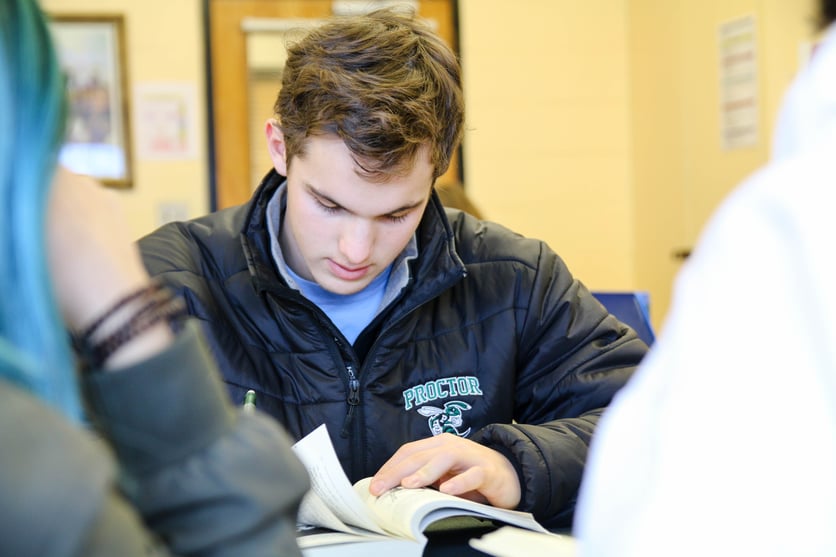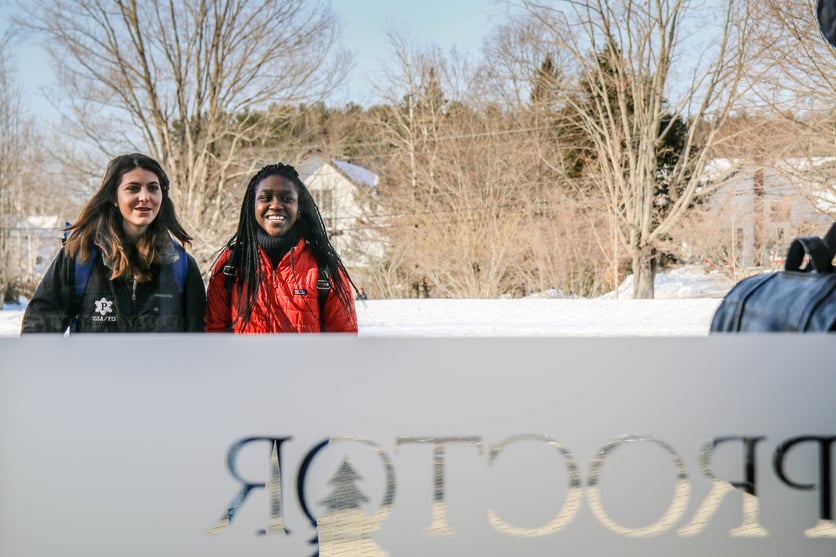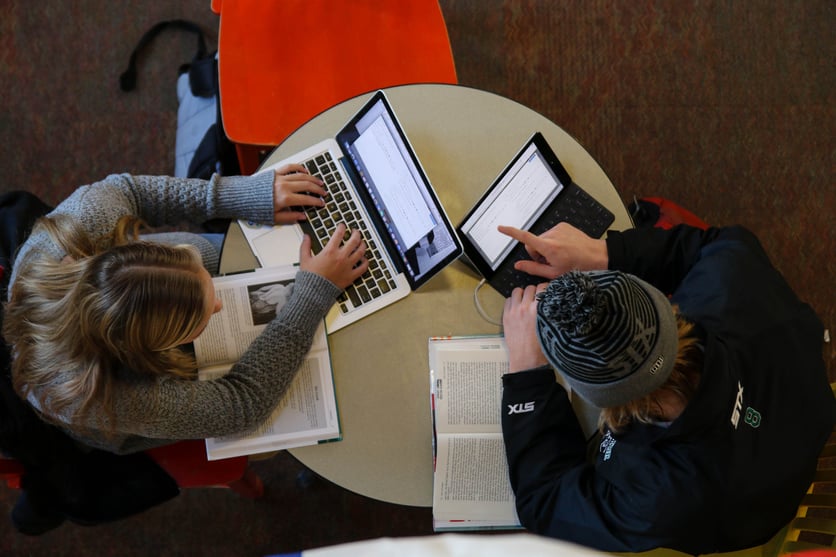The work of Proctor’s English Department, specifically American Literature students, will take center stage Thursday night at the Annual Hays' Speaking Prize. While this is certainly the most public display of work by students, these speeches are just the tip of the iceberg of the learning take place in the lower floor of Maxwell Savage Hall.

A recent conversation with English teachers Mark Tremblay and Shauna Turnbull elicited powerful insights into the intersection of teaching literature and Proctor’s overarching mission of expanding our students’ worldviews. Mark notes, “Language is the human representation of our thought. Expanding our vocabulary through writing ultimately expands our ability to think deeply, think broadly, and expand our students’ ability to understand the world.” Watch the short video below to hear more of Mark and Shauna’s insights on Proctor’s approach to teaching English.
Shauna adds toward the end of the video above, “Real literature doesn’t leave you with an answer, it leaves you with a question. The experiences we each bring to a book helps us answer that question for ourselves.” We are reminded daily through the variety of interactions we have with our students at boarding school of the variety of unique experiences our students bring with them to the classroom.

The trajectory of learning for each student is shaped by a combination of both prior and concurrent experiences. Experiences at a prior school, studying on one of Proctor’s off-campus programs, and discussion in other classes all simultaneously shape student perspectives in a powerful way. As educators, we must work hard to understand our students’ experiences outside of our own classroom. Through valuing both the emotional and cognitive landscape on which our students are operating, we are able to forge otherwise unforeseen connections that further enhance the relevancy of the education we are seeking to provide.

Proctor’s educational model intrinsically seeks to remove the silos that naturally form around academic departments and other programs at most independent schools. Just as Mark discussed how literature expands our worldview in the video above, we desire our students to see the same connections as physics augments their understanding of calculus, art their understanding of history, and psychology their understanding of themselves and their own learning styles. No academic department, off-campus program, athletic team, or art discipline operates in isolation at Proctor. Each provides critically important benefits to Proctor’s educational model, but it is the ‘whole’ of the Proctor experience that prepares our graduates to become self-confident, empowered, knowledgeable, empathetic citizens of the world.








